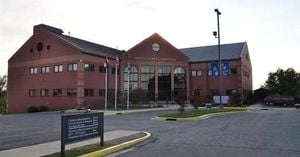February 28, 2025, is marking a pivotal moment where the intersection of agriculture and technology is becoming increasingly pronounced, particularly with advancements in smart technology and artificial intelligence (AI). These innovations are ushering in new practices aimed at enhancing productivity and sustainability within the agricultural sector across the globe.
Phạm Thị Thanh Huyền, Editor-in-Chief of Báo Đại biểu Nhân dân, emphasizes the transformative potential of smart production, stating, "Smart production is key to sustainable growth in agriculture." The implementation of high-tech solutions, including automation, sensors, and sophisticated data analytics, is proving to be instrumental. Such technologies not only help boost productivity but also reduce the negative environmental impacts traditionally associated with agriculture.
The Vietnamese government has taken significant steps by introducing key resolutions, which pave the way for the high-tech agricultural sector. Trần Hồng Nguyên, Deputy Chairman of the Legislation Committee, asserts, "The resolutions will create new momentum for the development of science and technology," thereby eliminating many previous constraints related to policies and mechanisms. This development is timely as it addresses the funding challenges faced by scientific research which has often failed to meet the mandated investment thresholds.
Both the agricultural and home appliance sectors are experiencing revolutionary changes. Major appliance brands, including China's Haier and Hisense, are integrating AI technologies, fundamentally changing consumer interactions with devices. An employee at Haier noted, "The integration of AI will enable household appliances to not only follow commands but learn user preferences," reflecting the growing trend of making home appliances respond to human habits.
This move to integrate smart technology within household appliances means they do more than perform functions; they adapt and learn. Products like Haier's latest AI-driven air conditioning units automatically adjust temperature settings based on user behavior, which not only enhances comfort but also optimizes energy consumption.
Looking closer at the agricultural impacts, Nguyễn Ngọc Sơn, who serves on the National Assembly, pointed out the importance of transitioning to smarter production methodologies. He stated, "The shift to smart production will optimize management and reduce risks from natural disasters," highlighting how technology can safeguard food supplies against climate variability. By employing advanced data management systems, farmers can now predict yields and mitigate potential risks more effectively.
The role of AI extends beyond mere automation; it's redefining how industries approach problem-solving and innovation. The push toward smart agriculture is not without its challenges—among these is the need for skilled professionals who can operate and manage these technologies. Lê Huy Hàm, the Head of the Agricultural Technology Department, recognizes this need, stating, "We must accept risks in scientific research and technology." He advocates for systems to be put in place to support innovative thought and allow scientists to take bold steps without the fear of failure.
Conversely, the agricultural sector is not the only one transformed by technological adoption. The domestic appliance market showcases how consumers are leaning toward smarter solutions. The collaboration among companies like TCL and Midea reflects this trend, where the formation of proprietary AI ecosystems is becoming increasingly necessary. The goal is to create interconnected smart homes integrated with various smart appliances functioning cohesively.
Industry reports indicate this significant investment trend; the complexity and urgency presented by AI technology present both tremendous opportunities and formidable challenges. A comprehensive report indicates AI talent demand jumped by nearly 94% last year, underscoring the necessity for companies to bolster their workforce to support these advancements, not only within production but also across customer service and operational domains.
Nonetheless, as these technological tides continue to rise, the adaptability of employees becomes increasingly imperative. Discussions around the employment challenges faced within these sectors reveal the need for enhanced training programs. This aligns with the calls for investment in human capital, ensuring the workforce is equipped to utilize these advanced technologies effectively.
While these adjustments may present short-term challenges, the long-term vision appears promising. The integration of smart technology within both agriculture and household appliances is not merely about efficiency; it’s also about reshaping consumer experiences and strengthening agricultural systems. Consumers will observe devices not just as tools but as integral components of their daily lives—affording them genuine assistance.
Looking forward, major exhibitions, including the China Household Appliances and Consumer Electronics Expo (AWE2025), will likely showcase groundbreaking smart technologies set to hit the market, indicating the dramatic evolution being witnessed. Experts like Chu Khắc Lực from the National Economic Research Institute predict 2025 will be pivotal, marking significant shifts where AI will play instruments beyond basic functions to create deeply personalized user experiences.
Hence, as agriculture and smart home technologies converge, the future paints a picture of innovation where smart living becomes the norm, ensuring both improved productivity and enhanced quality of life. This is not merely about adopting new technologies; it is about creating systems where these technologies align with human needs and realities.



